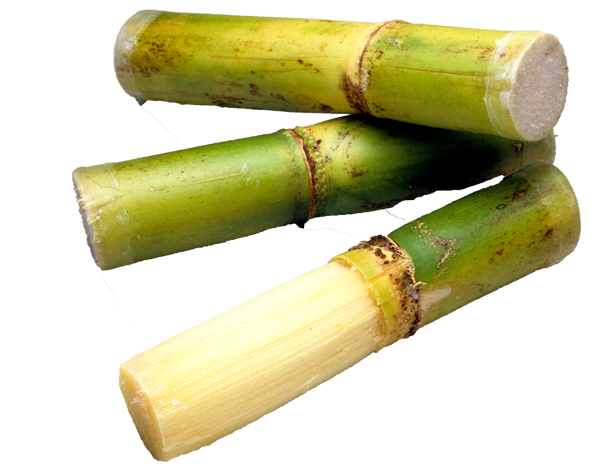A Closer Look at Sugar and Cane in the Global Food Industry
A Closer Look at Sugar and Cane in the Global Food Industry
Blog Article
Why Walking Stick Sugar Handling Chemicals Are Crucial for Modern Sugar Refining
The role of walking cane sugar handling chemicals in modern sugar refining can not be overstated, as they are important to boosting both the efficiency of removal and the general top quality of the last item. Representatives such as phosphoric acid and certain flocculants are used to get rid of impurities, leading to sugar that not just satisfies consumer assumptions yet additionally follows market standards. Nonetheless, the ramifications of these chemicals extend past quality, discussing market characteristics and ecological factors to consider. This elevates essential inquiries concerning the sustainability of such methods and their influence on the future of sugar manufacturing.
Function of Handling Chemicals
The efficacy of cane sugar handling pivots dramatically on the critical application of processing chemicals. These chemicals play a crucial duty in improving the performance and high quality of sugar extraction and refining. From the preliminary phases of juice removal to the last filtration actions, processing chemicals promote numerous essential operations.
In the extraction stage, chemicals such as phosphoric acid and calcium hydroxide are employed to enhance the explanation procedure, aiding to get rid of impurities and put on hold solids from the walking cane juice. This not just boosts the return yet additionally guarantees the clarity of the end product. Additionally, representatives like flocculants help in the rapid settling of impurities, thereby enhancing the general process.
As the processing advances, chemicals are utilized in decolorization and crystallization stages. Activated carbon and ion exchange materials offer to remove color and odor, ensuring that the polished sugar meets consumer high quality standards. Ultimately, the duty of processing chemicals expands past functional effectiveness; they substantially affect the sensory attributes of the final product, adding to market competition. Therefore, the careful option and application of these chemicals are essential for achieving optimum end results in walking stick sugar processing.
Secret Sorts Of Chemicals
Cane sugar processing relies on a selection of essential chemicals that promote each stage of production. These chemicals play necessary duties in making clear, bleaching, and purifying the sugar removed from walking cane.
One key classification of chemicals includes flocculants, such as polyacrylamide, which aid in the clarification process by promoting the aggregation and settling of contaminations. In addition, calcium hydroxide is frequently employed to counteract level of acidity and aid in the elimination of non-sugar components.
Lightening agents, such as activated carbon and sulfur dioxide, are made use of to decolorize the syrup, leading to a more clear end product. These chemicals help eliminate shade substances that might affect the sugar's look and marketability.
Moreover, phosphoric acid works as a pH regulator during the handling stages, ensuring ideal conditions for the chemical tasks associated with sugar extraction and filtration.
Other essential agents consist of edta (ethylenediaminetetraacetic acid), which chelates metal ions that might catalyze unfavorable responses, and salt hydroxide, which assists in pH control throughout the refining process. Collectively, these chemicals boost effectiveness and ensure a high-grade cane sugar item.
Advantages for Sugar High Quality
Frequently ignored, using specific handling chemicals dramatically boosts the general top quality of walking cane sugar. These chemicals play a critical function in refining processes, guaranteeing that the end product meets rigid industry criteria for purity and taste.

In addition, refining chemicals assist in attaining a consistent granulation and texture, which are important for customer acceptance. By managing the crystallization process, these chemicals make certain that the sugar crystals create consistently, causing an extra enticing item that liquifies well in different applications.
Moreover, using these chemicals can improve the shelf life of walking stick sugar by decreasing dampness absorption and microbial growth. Generally, the strategic application of processing chemicals is crucial for supplying high-grade walking stick sugar that meets consumer assumptions and industry needs.
Ecological Influence Considerations

Moreover, the energy-intensive nature of sugar refining, intensified by chemical use, often results in enhanced carbon emissions. This adds to climate change and increases concerns regarding the sustainability of current refining techniques. Furthermore, the sourcing of these chemicals might entail methods that intimidate biodiversity, such as monoculture farming, which reduces the durability of farming communities.

To mitigate these influences, sugar refiners are increasingly checking out lasting options and adopting finest practices that lessen chemical use. Applying rigorous ecological management systems can help make sure that the refining process lines up with environmental requirements and advertises biodiversity. Eventually, a balanced strategy that prioritizes both sugar top quality and ecological stewardship is important for the lasting feasibility of the sugar industry.
Future Patterns in Refining
As the sugar industry comes to grips with the environmental obstacles connected with typical refining techniques, cutting-edge techniques are arising to boost both effectiveness and sustainability. One considerable pattern is the adoption of green chemistry concepts, which focus on the use of safe, eco-friendly handling chemicals. This change not only minimizes ecological influence but likewise addresses consumer need for cleaner manufacturing approaches.
Another appealing advancement is the implementation of advanced filtering innovations, such as membrane layer separation and adsorption procedures. These methods boost the clarity and quality of the sugar while lowering the quantity of wastewater produced during refining. Additionally, the assimilation of electronic innovations, consisting of IoT and AI, is changing functional effectiveness by allowing real-time monitoring and predictive maintenance, therefore lessening source waste.
In addition, using spin-offs from sugar refining, such as bagasse and molasses, is gaining grip. These products can be transformed right into biofuels or value-added products, adding to a circular economy within the sector. Collectively, these trends indicate a shift in the direction of even more sustainable techniques that not only boost functional efficiency but additionally straighten with worldwide sustainability objectives, making sure the look here future practicality of sugar refining.
Verdict
Walking stick sugar processing chemicals are vital in contemporary sugar refining, significantly enhancing the efficiency and top quality of sugar removal. The calculated use these chemicals not just enhances the pureness and taste of the final item however additionally makes sure regular condensation and appearance. As the sector progressively focuses on sustainability, the adoption of environmentally-friendly handling agents is most likely to shape future trends in refining, eventually resulting in better products and prolonged service life for customers.

Ultimately, a well balanced approach that prioritizes both sugar top quality and environmental stewardship is necessary for the long-term feasibility of the sugar market.
Cane sugar handling chemicals are vital in contemporary sugar refining, considerably boosting the efficiency and high quality of sugar removal.
Report this page